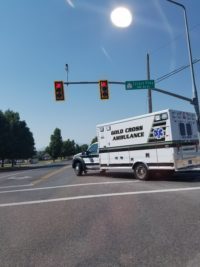Top Insurance Defenses to Utah Car Accident Cases
The majority of my legal work is personal injury, and specifically, car accident cases. I always represent the injured, not the insurance carrier. I see what the common objections and defenses insurance adjusters take, along with their attorneys.
Here are the top insurance adjuster defenses and how to avoid them.
(1) Car Accident Gaps in Treatment.
Gaps in medical treatment can occur because you waited two days to go to the emergency room or because your car broke down and you missed four visits with the chiropractor. Regardless of how a gap in your medical treatment occurred, the insurance company, it’s lawyers, and claims adjusters will use this gap to argue that you really were not hurt, because if you were really hurt, you would never have missed your medical treatment. Or, if you did not seek medical treatment for 15 days after the car accident, they will state it wasn’t really that important anyway, otherwise, you would have gone immediately. Gaps in treatment are great defense cross-examination material. Gaps in treatment also allow the defense to argue that other intervening physical injuries caused your current status, not the Utah car collision.
Life gets in the way, and people sometimes miss their medical appointments. You can avoid this defense by understanding the importance of keeping your appointments or providing proof to your attorney when you miss appointments. In the past, I have provided the adjuster with car repair receipts excusing my client’s missed appointments, or the funeral program demonstrating their excused and reasonable absence.
Your health comes first. So make your medical appointments and follow your doctor’s advice and your compensation claim will be stronger.


(2) Excessive Car Collision Medical Treatment.
In Utah, insurance adjusters look down on chiropractic physicians, especially if you are overtreated by the chiropractor. If you are racking up a $7,000 chiropractic bill on a moderate rear end case, the insurance company will not want to pay you for all your medical bills. Physical therapists are not immune from this problem either. They will argue that your medical care was not medically necessary and a more conservative medical course of action was warranted. The insurance carriers will bring in their medical experts who will opine that your care was not necessarily related to the car accident, was palliative (relieving pain without dealing with the problem) and excessive. If your car accident case involves $8,000 in chiropractic care only without a multi-disciplinary approach, it will be difficult to convince the jury, arbitrator or insurance adjuster that all that care was necessary. The insurance defense argument is that the chiropractor was just lining his pockets, rather than referring out to other medical professionals, such as physical therapy, radiology or an orthopedic doctor when the patient’s care management stalled.
You fix this problem by working with an experienced personal injury attorney who knows how to use a multi-disciplinary medical approach to the injured party’s care. Good personal injury attorneys and good doctors use a multi-disciplinary medical approach because it validates the proper medical course of treatment. If the injured party’s chiropractor is diagnosing a neck strain, but the patient is not getting better, then a referral to radiology, with a visit to the physical therapist may be in order. Each case is different, but good doctors will use a multi-disciplinary approach, not just try to hoard all the no-fault benefits for themselves, to the detriment of the client’s care.
Your personal injury attorney should be monitoring your medical care to ensure proper medical-legal documentation to prove your injuries to the insurance adjuster.
Imagine two backseat passengers where both involved in the same rear end car collision. Further imagine that their injuries were similar, but one passenger did not properly document their physical injuries with appropriate medical providers. While the other passenger did. Same injuries, involved in the same car collision, but their settlement amounts will be different. Insurance companies do not pay compensation for claims if the medical evidence is not properly documented.
(3) Preexisting Injuries.
An at-fault driver who violates traffic safety rules is responsible for all the damages they cause. But they are not responsible for pre-existing injuries that were not caused by the car collision. Similarly, the at-fault driver is responsible for aggravating a pre-existing injury. Insurance companies will scour your medical records for any indication of a pre-existing injury. Something they can point to as the real root of the problem, in attempts to shift fault from the car accident to a preexisting physical injury.
As people go through life, they will have pre-existing injuries and it is not fair to ask an at-fault driver to pay for injuries they did not cause. The way to tackle the pre-existing injury problem is to obtain the medical records and compare them against your current injuries. Your personal injury attorney will compare the physical locations of the injuries, the symptoms of the injuries and other medical diagnostic tools to determine if the car accident injuries were pre-existing or just aggravated or they are new injuries.
Often times it is required to hire an expert witness medical doctor to distinguish what injuries were pre-existing, which injuries were pre-existing but aggravated and which injuries are completely new and caused by the collision. In fact, without an expert witness in a pre-existing injury situation, your case will be dismissed for inability to provide the adequate testimony for the jury to base it’s decision on.


Conclusion
